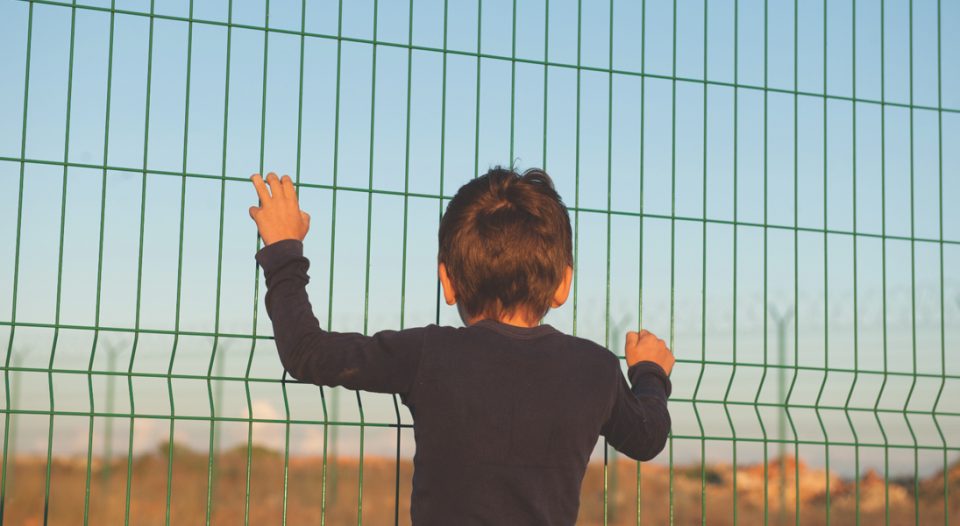A lot has changed in the decade-plus since I co-wrote They Are Us: Lutherans and Immigration (Augsburg Fortress, 2009) with Ralston Deffenbaugh. In the book, we attempted to build a biblical case for embracing immigrants and refugees, tell the history of immigration in the United States and the Lutheran church, highlight policy issues and share the work Lutheran leaders and congregations were doing across the nation.
A just-published second edition (Fortress Press, 2020) updates our case with signs of crisis and hope over the past 10 years.
There are numerous signs of crisis. The Arab Spring and ongoing global conflicts have created an international emergency for forcibly displaced refugees. Populism and nationalism are causing a hostile response in receiving countries. The migration of children and families from the Northern Triangle of Central America has created a dire situation at the U.S.-Mexico border. Immigration and refugee issues have polarized some of our congregations.
Abraham, a wandering Aramean, is my grandfather in the faith.
But there are also signs of hope. The Biden administration has claimed it will work to reunite family members who have been separated, pursue comprehensive immigration reform and increase refugee resettlement. The ELCA established the AMMPARO (Accompanying Migrant Minors with Protection, Advocacy, Representation and Opportunities) strategy. The 2019 Churchwide Assembly declared the ELCA a “sanctuary denomination.” From the ground up, the ELCA is renewing as a church of immigrants.
Much has changed in the last 10 years, yet for faith communities, immigration issues are as old as Abraham and Sarah. Abraham, a wandering Aramean, is my grandfather in the faith. His wife, Sarah, is my spiritual grandmother.
A wandering Aramean was my ancestor; he went down into Egypt and lived there as an alien, few in number …. When the Egyptians treated us harshly and afflicted us, by imposing hard labor on us, we cried to the Lord, the God of our ancestors …. The Lord brought us out of Egypt with a mighty hand … and he brought us into this place (Deuteronomy 26:5-9).
“I found us”
Now the Lord said to Abram, “Go from your country and your kindred and your father’s house to the land that I will show you” (Genesis 12:1).
An economic migrant and a desert nomad, Abram led his family toward a land of promise. So began the great trek for new life, survival, redemption. It is a trek repeated today in the heat of the Sonoran Desert, in boats from Africa running ashore in southern Europe, in squalid camps where refugees wait to be resettled and in Central America, where children flee for their lives.
Along the trek, Abram found hope, welcome and signs from God. At each place of hope and refreshment, he built an altar and called on God. He gave names like Shechem and Bethel to these places on his journey where he remembered God’s grace.
Abram passed through the land to the place at Shechem …. Then the Lord appeared to Abram, and said, “To your offspring I will give this land.” So he built there an altar to the Lord (Genesis 12:6-7).
Today, Shechem and Bethel may take the form of AMMPARO and Lutheran Immigration and Refugee Service, of welcoming congregations and advocates for immigration reform.
Today, Shechem and Bethel may take the form of AMMPARO and Lutheran Immigration and Refugee Service, of welcoming congregations and advocates for immigration reform. This is our trail of altars.
My daughter and I once visited Ellis Island together. “I found us,” she said when she read our family name on the museum’s wall. We Lutherans “find us” as we read of Abram’s migration, the beginning of our family journey.
The alien who resides with you shall be to you as the citizen among you; you shall love the alien as yourself, for you were aliens in the land of Egypt (Leviticus 19:34).
The two kingdoms
The issues are complex, but Lutherans have a two-handed God. Martin Luther described earthly or political authority as “the left hand of God” and the spiritual authority of the gospel as “the right hand of God.”
In the kingdom of the left hand, we engage others with humility, knowing that we could be wrong about an approach or that what we can achieve may fall short of the best possible outcome.
The church that becomes the face of Jesus to the poor, the stranger and those without the gospel is a church that is always being renewed and reformed.
We can disagree on certain policies in the kingdom of the left hand. Not so in the kingdom of the right: “red” and “blue” citizens sit together in our pews and hear the God of the Bible call us to welcome the stranger and care for the neighbor, without equivocation or apology. Compassion, solidarity and generosity of spirit come naturally to grandchildren of a wandering Aramean.
The church that becomes the face of Jesus to the poor, the stranger and those without the gospel is a church that is always being renewed and reformed. Such renewal is powered by Jesus’ resurrection from the dead.
I am a grandson of Abraham, a wandering Aramean, and of Hermann Jansen Bouman of the North Sea—immigrants both. I acknowledge my siblings of African descent whose ancestors came in forced migration via the Middle Passage, and those who were already here when my ancestors got off the boat. All of us in our history, strangers in a strange land.
Learn more
AMMPARO: elca.org/ammparo.
ELCA Advocacy: elca.org/advocacy.
ELCA World Hunger: elca.org/hunger.
Lutheran Immigration and Refugee Service: lirs.org.
Observe World Refugee Sunday (June 20 or June 27).





